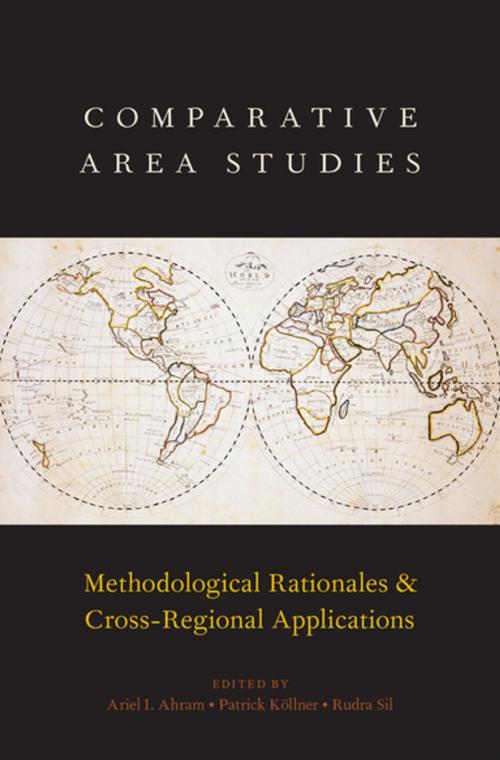Comparative Area Studies
Methodological Rationales and Cross-Regional Applications
Nonfiction, Social & Cultural Studies, Political Science, Politics, Regional Planning, History & Theory| Author: | ISBN: | 9780190846404 | |
| Publisher: | Oxford University Press | Publication: | January 3, 2018 |
| Imprint: | Oxford University Press | Language: | English |
| Author: | |
| ISBN: | 9780190846404 |
| Publisher: | Oxford University Press |
| Publication: | January 3, 2018 |
| Imprint: | Oxford University Press |
| Language: | English |
In the post-World War II era, the emergence of 'area studies' marked a signal development in the social sciences. As the social sciences evolved methodologically, however, many dismissed area studies as favoring narrow description over general theory. Still, area studies continues to plays a key, if unacknowledged, role in bringing new data, new theories, and valuable policy-relevant insights to social sciences. In Comparative Area Studies, three leading figures in the field have gathered an international group of scholars in a volume that promises to be a landmark in a resurgent field. The book upholds two basic convictions: that intensive regional research remains indispensable to the social sciences and that this research needs to employ comparative referents from other regions to demonstrate its broader relevance. Comparative Area Studies (CAS) combines the context-specific insights from traditional area studies and the logic of cross- and inter-regional empirical research. This first book devoted to CAS explores methodological rationales and illustrative applications to demonstrate how area-based expertise can be fruitfully integrated with cutting-edge comparative analytical frameworks.
In the post-World War II era, the emergence of 'area studies' marked a signal development in the social sciences. As the social sciences evolved methodologically, however, many dismissed area studies as favoring narrow description over general theory. Still, area studies continues to plays a key, if unacknowledged, role in bringing new data, new theories, and valuable policy-relevant insights to social sciences. In Comparative Area Studies, three leading figures in the field have gathered an international group of scholars in a volume that promises to be a landmark in a resurgent field. The book upholds two basic convictions: that intensive regional research remains indispensable to the social sciences and that this research needs to employ comparative referents from other regions to demonstrate its broader relevance. Comparative Area Studies (CAS) combines the context-specific insights from traditional area studies and the logic of cross- and inter-regional empirical research. This first book devoted to CAS explores methodological rationales and illustrative applications to demonstrate how area-based expertise can be fruitfully integrated with cutting-edge comparative analytical frameworks.















